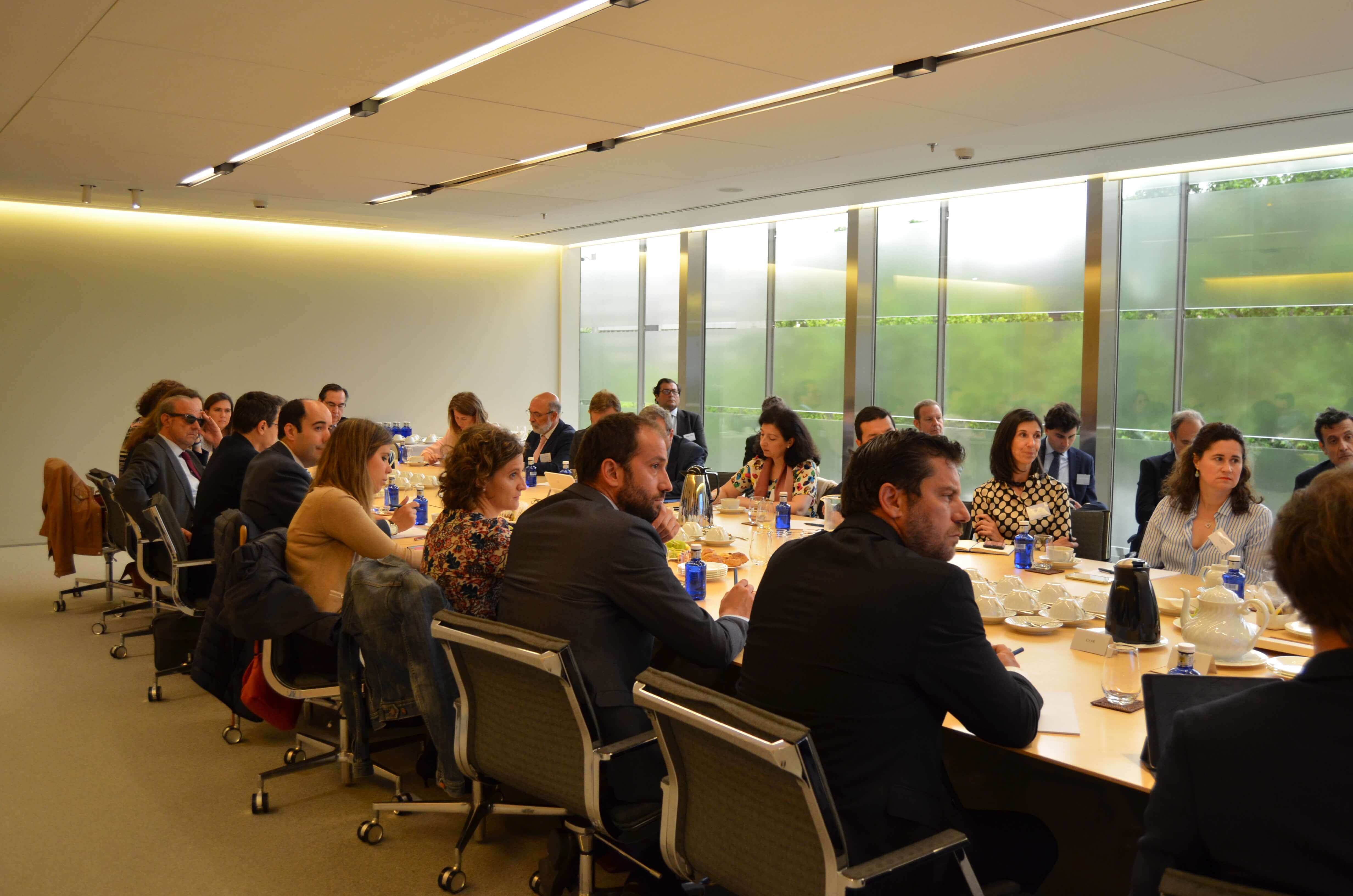On this occasion, the topic under discussion was the various problems that have been observed since the new Law on Public Sector Contracts Law came into force
At Pérez-Llorca’s first “Public Procurement Breakfast Session”, Partner Elena Veleiro and Associates Natalia Olmos and Carlos Pérez, from the firm’s Public Law practice, discussed the main issues that have arisen in the application of Law 9/2017, of 8 November, on Public Sector Contracts, which implements Directive 2014/23/EU and 2014/24/EU, of the European Parliament and of the Council, of 26 February 2014, into Spanish law.
Natalia Olmos began the session by explaining the problem that the new regulation has caused in terms of awarding smaller contracts, and how the various public procurement advisory bodies of the state and the autonomous communities have been interpreting it. She also outlined the criteria that the various contracting authorities have applied in order to exclude bidders who submit excessively low tenders, interpreting the regulatory change in the Public Sector Contracts Law.
Carlos Pérez then discussed the practical problems caused by the obligation to deliver notifications relating to public procurement procedures electronically, as well as the need to submit tenders and requests to participate by the same means, apart from specific exceptions that are interpreted restrictively. After considering the regulation in general, he elaborated on the challenges posed by the introduction of e-government in smaller public administrations with fewer resources and technical and material means, and also discussed the measures that have been considered in response to the growing public sector concerns about cybersecurity in e-government.
Elena Veleiro concluded the session by analysing the new type of contract introduced by the European Directives: public services concessions. She also discussed significant case law that has defined and delimited the concept of service concessions and the nature of service contracts.
Lastly, the attendees had the opportunity to talk to the speakers and share their practical experiences following the entry into force of the new law. The issue of smaller contracts and the use of electronic media in public tenders were the main focus of the debate.
